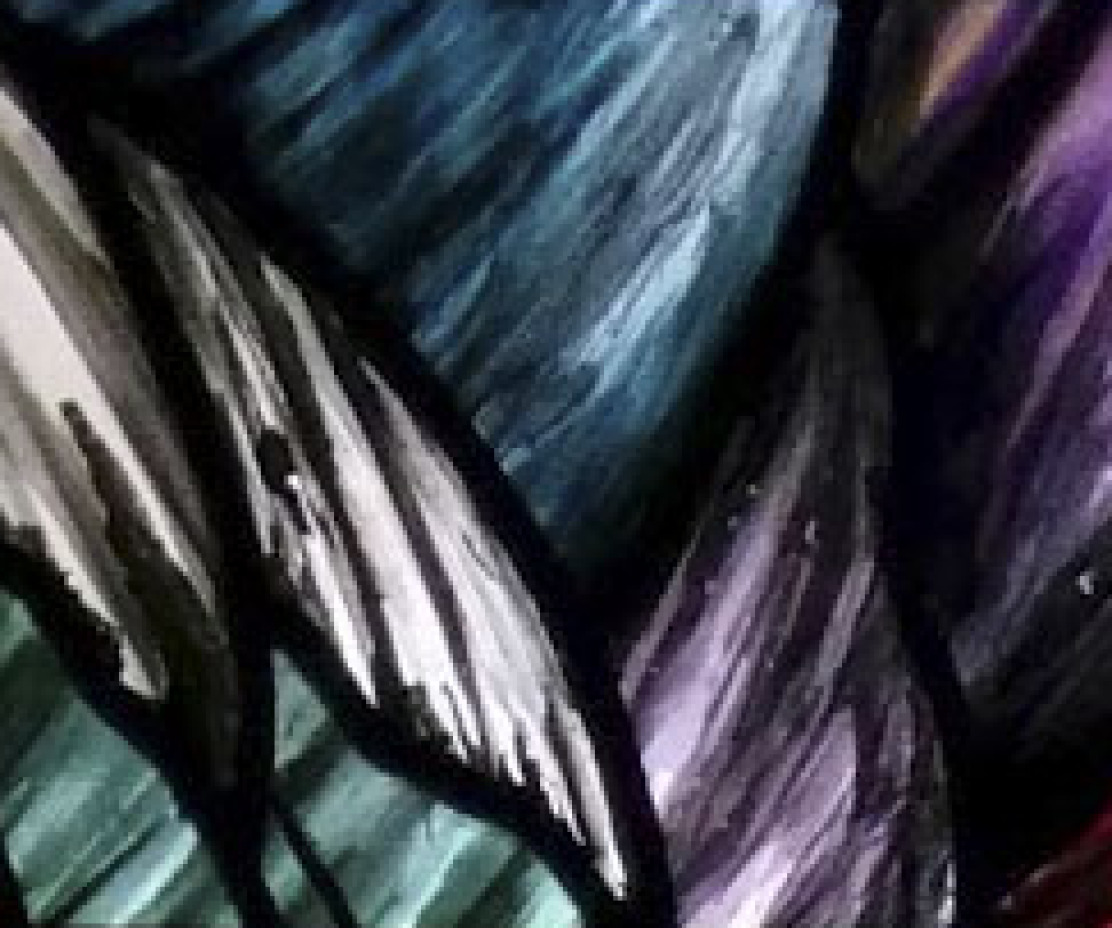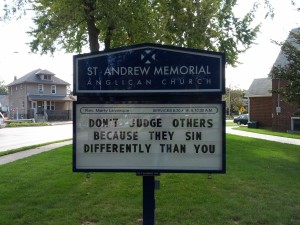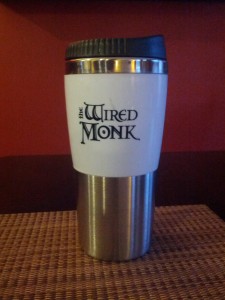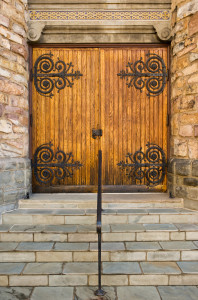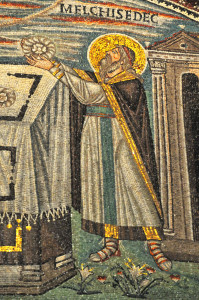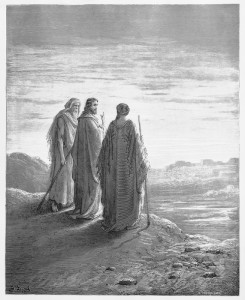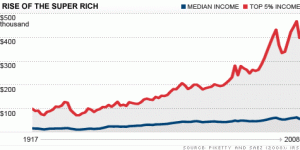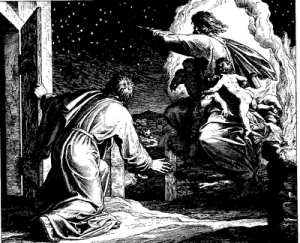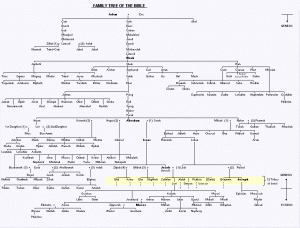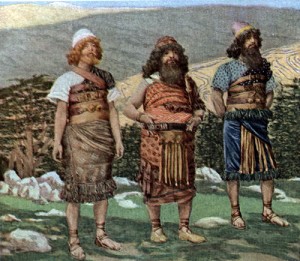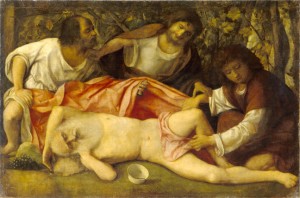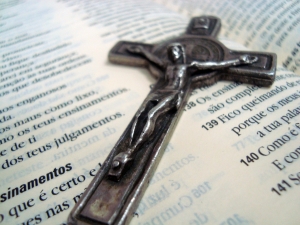The follow sermon series was inspired from my recent mission trip to El Salvador with Foundation Cristosal. Walking through Holy Week is something I had the privilege to do this past year, not just during Holy Week itself, but also in the lives, memory and people of El Salvador. I have included for you pictures that inspired my thoughts. I hope and pray that my words and thoughts have honoured the people we met and the stories we were entrusted with.
Palm Sunday
Readings:
Isaiah 50:4-9b
Psalm 31:9-16
Philippians 2:5-11
Luke 22:14-23:56
When you step off the plane in El Salvador and you enter into the city of San Salvador, without realizing it you are stepping into the biblical narrative. That isn’t to say that El Salvador is some backwards third world country that has you stepping backwards 2000 years into the past, for San Salvador is much like any North American city complete with gas stations, shopping malls and of course ice cream shops, just ask the Dean of the Cathedral. Every time we past one there was a Kevin shaped cloud in the place where Kevin recently stood, right out of Loony Tune cartoons fame.
No what I mean is that the biblical story has been lived out in El Salvador in our generation. This becomes abundant clear as you drive around the city and you steep yourself in its people and its history. This is the place that suffered its people in slavery, suppressed by Pharaoh, an oligarchy. This is the place where they journeyed for years in exile during the civil war, searching for their promise land, to share all that God had promised them. And this is the place that gave birth to some of the most profound people in the Liberation Theology, messiahs of sorts.
Let me explain. You see before Oscar Romero was Oscar Romero, he was a dutiful priest in El Salvador. He was, in many ways, ill prepared for his ascension to the role of Archbishop of the Roman Catholic Church in El Salvador. He was a quiet man, who more often then not shrank from confrontation. He was prayerful of course and he lived a pious and meager life, serving the people that God sent to him.
But much like the Catholic Church as a whole, he focused on the salvation of the person’s soul. The scripture that informed the church’s position was, “blessed are the poor for theirs shall be the kingdom of heaven”. He taught, much like the rest of the church, that you ought to be happy with your lot in this life for in the kingdom of heaven they would receive their reward. And the church was a tool of the right wing government, the military and the oligarchy that helped to maintain the status quo and oppress the poor. Hardly the principles of a legend, like Romero.
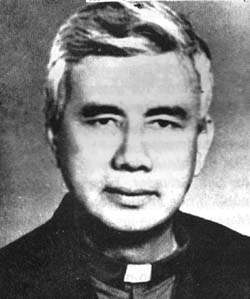 That was, of course, till Romero met a friend and mentor, Padre Grande. Padre Grande was a revolutionary, a rogue and a radical. And he was a mentor to Romero. Padre Grande preached a radical message. He preached that God loved all, equally in this world and in the next. But more so he preached that God went to the poor, to those that suffers. That God goes to the poor of El Salvador and that God wants the wealth of the world, and especially of El Salvador, to be redistributed so that all share in God’s abundance.
That was, of course, till Romero met a friend and mentor, Padre Grande. Padre Grande was a revolutionary, a rogue and a radical. And he was a mentor to Romero. Padre Grande preached a radical message. He preached that God loved all, equally in this world and in the next. But more so he preached that God went to the poor, to those that suffers. That God goes to the poor of El Salvador and that God wants the wealth of the world, and especially of El Salvador, to be redistributed so that all share in God’s abundance.
This revolutionary and a counter cultural message of the times rubbed the oligarchy the wrong way. Romero hadn’t adopted this position when he ascended to be archbishop of El Salvador. In fact, he was chosen because to be archbishop because he was quiet and a moderate. The government and the oligarchy figured he would be a useful tool in using religion as the opiate of the masses in an effort to maintain the status quo.
Two events changed the course of Romero’s life and therefor changed the destiny of the people of El Salvador. He was asked to be present by the army at a student protest, for the army feared violence would break out and the archbishop’s presence with the military could help keep the peace. Three times the generals asked Romero, and three times Romero quietly and simply said he would pray for them.
When Romero woke the next day and opened the paper, he read of the violence that had occurred. Romero had an epiphany that day. A moment when the heavens are tore open and God descends. That doing nothing was, in fact, a choice, and therefore he was complicit with the murders and the violence that had just occurred.
And while Romero was wrestle with this knowledge, during a period of fasting and prayer, Padre Grande his mentor and friend and leader in the liberation theology movement in the Roman Catholic Church in El Salvador, was assassinated by the government.
These two events, the gift from God of knowledge and the death of a mentor spurred Romero into a new direction, a new ministry; a ministry to be with the poor and speak on behalf the poor. A ministry that focused on the life of Christ, the life that Christ lead; of feeding the poor, healing the sick and caring for the most vulnerable of society.
If this reminds you of the baptism of Christ and Jesus’s relationship with John the Baptist, it should, for it is mirror of the Gospel story. And for the next three years, three years, Romero would champion the cause of the poor. For three years, much like Christ himself, Romero worked at healing a nation and a people divided. The oligarchy, the Pharisees though, fought him every step of the way.
Until after three years they could take no more. The Pharisees, the oligarchy, conspired after one of the most controversial sermons Romero preached in which he ordered the soldiers of the military to disobey orders when ordered to kill their brother or sister, their fellow Salvadorian. That God’s law of thou shall not kill trumps any order from officers in the military, or from the oligarchy, the Pharisees.
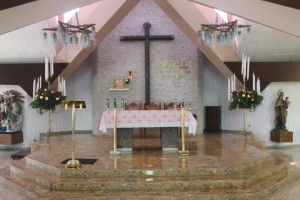 And while preparing to celebrate the last supper, the Eucharist, the greatest the offering to God of the church, Romero was assassinated. Gunned down in cold blood has he stood behind the altar of our Lord.
And while preparing to celebrate the last supper, the Eucharist, the greatest the offering to God of the church, Romero was assassinated. Gunned down in cold blood has he stood behind the altar of our Lord.
As I reflected upon Palm Sunday and Christ triumphant entrance into Jerusalem after three years of preaching, healing and caring for the poor in the outskirts of the Holy Land, I remembered the story I had just walked in El Salvador. I remembered Christ own journey from baptism and his light rising as John light faded, till John was eventually killed. And I remembered how Christ actions of siding with the poor and fighting systems of oppressions would lead to his eventual crucifixion.
Of course Christ is resurrected, while Romero lies dead still. Except that in his final sermon Romero boldly predicted that even if he was killed he would live on in the people of El Salvador. And as we past mural after mural, the image of Oscar Romero is literally everywhere in El Salvador.
So I invite you my friends, as we prepare ourselves for Holy Week, and to walk the path from the triumphant entrance into Jerusalem to the cross; and from the cross to the tomb. And from the tomb to the resurrection; I invite you to remember that this is not just a story from a long time ago, but it is a story that God continues to enact in our world today. It is the story of the people of El Salvador and if we have ears to listen and eyes to see, it is our story also, the story of St Andrew Memorial and the people of London.
This week, look around you, read the paper, watch the news and be vigilant in prayer. For if you look around you, you will see the heavens split apart and God’s spirit descend. You will see wild men and women preaching the gospel and offering their lives. You will see people offering service, healing others and caring for the poor and you will see death, like death upon the cross. But if you look, if you really really look, pray and see with spirit filled eyes, you will have the privilege of also seeing resurrection.
Amen.
Maundy Thursday
Readings
Exodus 12:1-14
Psalm 16:1-2, 12-19
1 Corinthians 11:23-26
John 13:1-7, 31b-35
What does it mean to be a servant? And what does it mean to choose to serve the poor? These are the questions that pre-occupies a preacher during Holy Week, and most especially as we begin the Triduum; the great three days of Easter; Maundy Thursday and the institution of the last supper; Good Friday when our Lord and Saviour is crucified and the Great Easter Vigil with the kindling of the new fire and the celebration of the empty tomb and the resurrection of Christ.
What does it mean to be a servant, a servant like Christ? Is it that once a year I kneel before you, my congregation, and humble myself and wash your feet as Christ washed the disciples feet? Perhaps. But this symbolic act is meant to remind and re-enforce the servant ministry that we have all taken up in our common baptism.
What does it mean to be a servant?
Our world, I think, is not so different then the world in which Christ found himself. He championed the poor and spoke on behalf of those that had so little. He cared for the sick and the outcast, ate and lived with sinners. And in the process violated many religious laws, whether biblical or institutional, that had been in place and used to oppress the poor and maintain the structures of society that benefitted the elite, an oligarchy.
Jesus message was a dangerous message for the powers of Jerusalem. Not because they would insight a revolt against Rome, but because they would insight a revolt against the religious oligarchy that had formed over many centuries and clung to its power. It was Jesus who stepped into the temple and drove the moneychangers out of the temple.
The scam was actually quite intricate. To have your sins forgiving you must offer sacrifice at the temple. You would journey to the temple and in the outer court purchase a dove from the priest to sacrifice. But because you couldn’t purchase a sacrifice with money that had a graven image upon it, like the image of Caesar, you had to change your money in for temple currency, at a fee of course.
The sacrifice would then be taken to the priest, and the penitent sinner would hope the priest did not find a blemish on the dove, for the process would start over and each time it did the temple authorities would glean a little more off the top because a dove with a blemish would not be worth the original price paid for it.
This religious oligarchy would do whatever they had to do to maintain their control and power over the people. What was at stake for them was their power, wealth and earthly possessions. And like most of history, oligarchies use deadly force to silence movements before a revolt could occur and their power eroded.
History is replete with example after example of this same story being lived out time and time again. It happened in ancient Palestine with Jesus, it happened in South Africa under Apartheid, and it happened in El Salvador.
When the power and wealth of oligarchies, the social elites, is threatened, they use whatever resources are at their disposal to silence the ones that are speaking on behalf of the poor and serving the most marginalized in society. For when the poor are cared for, they have something very very dangerous, hope. And with hope, they aspire for something better.
In the case of South Africa this was the imprisonment of Nelson Mandela, the execution of Stephen Biko and the forced oppression of millions of people. In El Salvador this comprised of the assassination of prominent church figures like Oscar Romero, Padre Grande, the Jesuits instructors at the University of the Americas and many others.
In El Salvador this went so far as to ban the owning and carrying of a bible. For the bible and the biblical message of caring for the poor and the sick, that God always sides with the poor and calls government to the fire for not caring for the poor, was seen as a communist message, a revolutionary message and a message that threatened the power of the ruling elites. And it is this message, preached and lived by Oscar Romero, that lead to his assassination by the government.
An example closer to home for us is the way in which the rich used the state and the police to disperse and eliminate a growing movement is the occupy movement, which was casting a light upon the income discrepancy between the 1% and the 99%.
In each case the powerful and rich of society continue, as they did 2000 years ago, to bully, silence and many times resort to coercive and deadly force to eliminate those that would speak on behalf of the poor and marginalized; to point out the various structural injustices in society.
What does it mean to be a servant?
The servant is often cast in a horrible light in the media, as stories are fabricated or embellished. Servants are forced to live through attack after attack upon their character, their morality and often their very physical being as well.
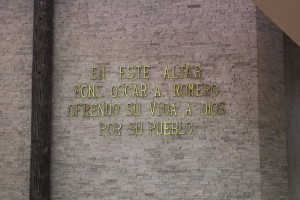 To be a servant, is to suffer and walk in the shadow of the cross. It is to be vilified in society and cast out because the oligarchies, filled with greed for wealth and power, will do whatever they have to do to keep their wealth, even if that means oppressing the poor, destroying the lives of thousands and eliminating servants, by whatever means necessary.
To be a servant, is to suffer and walk in the shadow of the cross. It is to be vilified in society and cast out because the oligarchies, filled with greed for wealth and power, will do whatever they have to do to keep their wealth, even if that means oppressing the poor, destroying the lives of thousands and eliminating servants, by whatever means necessary.
Tonight as we reflect upon what it means to be a servant like Christ, to bend low and wash the feet of the disciples, we come face to face with the cost of a servant ministry, the cost that many saints before us have born. And we struggle with our willingness to bare these costs and to speak on behalf of the poor and to serve those in needs. But as we struggle to with the true cost of servant-hood we know as Christians, we do not bare these costs alone.
Even in the darkest of nights in prison on Robbin Island, Mandela knew he was not alone. Standing at the altar, preparing to celebrate the Eucharist, Romero knew he was not alone. And as we, servants of our fellow person, we know when we go forward to do the work of God, the Missio Dei, we are not alone either.
We are joined to Christ and the saints throughout the ages through our common baptism. And we gain insight and courage from their example. But most notably and most importantly, we gain strength and courage to continue to serve the poor by being nourished in the meal that Jesus inaugurated this night, in the bread and the wine, the Eucharist.
In it we find hope, peace and most especially love. And armed with these virtues we go forward into the world to serve the poor and meet all those that would stop us with hate, anger and violence to save for themselves a few more dollars. And while at times it may seem bleak and hopeless, we return to the table to be nourished and find what will be waiting for us on Easter Sunday, in the empty tomb and God’s promise. Peace, love, hope and Resurrection. All the things we need to be servants.
Amen.
Good Friday
Readings:
Isaiah 52:13-53:12
Psalm 22
Hebrews 10:16-25
John 18:1-19:42
Rufina Amaya was one of the only survivor of the El Mozote massacre on December 11 and December 12, 1981, in the Salvadoran department of Morazán during the Salvadoran Civil War.
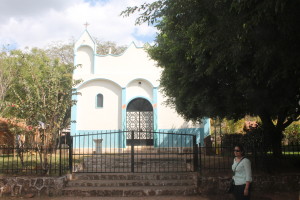 Early in the morning, the soldiers assembled the entire village in the square. They separated the men from the women and children and locked them in separate groups in the church, the convent, and various houses.
Early in the morning, the soldiers assembled the entire village in the square. They separated the men from the women and children and locked them in separate groups in the church, the convent, and various houses.
During the morning, they proceeded to interrogate, torture, and execute the men in several locations. Around noon, they began taking the women and older girls in groups, separating them from their children and gunning them down after raping them.
Finally, they killed the children at first by slitting their throats then by hanging them from trees, with one child as young as two years old. After killing the entire population, the soldiers set fire to the buildings and burned the village and all the corpses to the ground.
The soldiers remained in El Mozote that night but the next day went to the village of Los Toriles, some 2 km away and carried out a further massacre. Men, women and children were taken from their homes, lined up, robbed and shot and their homes then set ablaze.
Hidden in a tree to which she had run to while soldiers were distracted, Amaya watched and listened as government soldiers raped women, then killed men, women. She watched them then burn the bodies.
Amaya lost not only her neighbors, but also her husband whose decapitation she saw; her 9-year-old son, who cried out to her, “Mama, they’re killing me. They’ve killed my sister. They’re going to kill me.”; and her daughters ages 5 years, 3 years, and 8 months old were also killed. The only one of her children who was not killed in the massacre was her daughter Fidelia, who was not in the village at the time.
Following the massacre, Amaya became a refugee for a time in the neighboring country of Honduras. She returned to El Salvador in 1990. Her testimony of the attacks, reported shortly afterward by two American reporters, but the reports were called into question by the U.S. journalism community as well as by the U.S. and Salvadoran governments, was instrumental in the eventual investigation by the United Nations Commission on the Truth for El Salvador after the end of the war.
The investigation led to the November 1992 exhumation of bodies buried at the site and the commission’s conclusion that Amaya’s testimony and experiences had accurately represented the events has they occurred.
I cannot imagine what Amaya had gone through that night or any other night afterwards when she closed her eyes and went to slept. What visions and dreams would haunt her? I cannot imagine what she endured as a wife, a friend and a mother. Or how she continued on and even moved back to the site of such a horrific event.
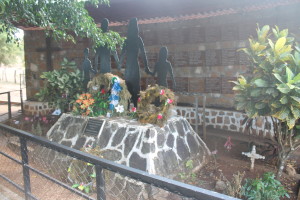 And as I cried at the mass burial site, knowing my tears were mixing in the dirt with the tears of so many others who had come there since so much blood had been spilled, and I looked at the grave of Rufina Amaya, buried with her kin after her death in 2007 from a stroke, I was confronted with the ugliness of the cross, and the love of a mother, of Mary.
And as I cried at the mass burial site, knowing my tears were mixing in the dirt with the tears of so many others who had come there since so much blood had been spilled, and I looked at the grave of Rufina Amaya, buried with her kin after her death in 2007 from a stroke, I was confronted with the ugliness of the cross, and the love of a mother, of Mary.
The brutal power of the state, of the right wing government and the oligarchy bent on crushing a rebellion is not very different then the oligarchy of religious Jewish figures and the Roman Empire some 2000 years ago.
The desire for earthly power and money and the lengths that people go to cling to that power is disturbing. And standing at the crossroads of the cross of El Mozete I was forced to confront that our world is not so much different or evolved.
In that village, Christ suffered. In that village Christ was crucified. And in that village Christ died. Soldiers carried out the orders of the ruling elites and crucified the Lord. Power and wealth was protected. A movement crushed and the people beat down by a power thirsty oligarchy. And this all happened while Mary or Rufina, the mother watched.
Today, as we come forward to venerate the cross, stop and read the articles and look at the pictures crucified on the wood. Christ suffered long ago, in the mists of time. But Christ continues to suffer, in the people of El Salvador, the men, women and children of El Mozote and in the many tragedies that continue in the world.
Today we have walked with Christ as far as we can go. We can walk no further. Now, like Mary and like Rufina Amaya, we must watch, we must see, and we must listen. We must tell the story so it is not forgotten, how one man speaking to the face of power risked everything for the poor of the world. We must tell the story of how Christ continues to pour out his blood in the people of the world, in the people of El Salvador and El Mozote and we must be vigilant in prayer, looking for hope and trusting that God will provide.
Amen.
Easter Sunday
Readings:
Isaiah 65:17-25
Paslm:118:1-2, 14-24
1 Corinthians 15:19-26
John 20:1-18
Over this past Holy Week we have travelled from the triumphant entrance into Jerusalem of Jesus to great fanfare and him being welcomed as a king, the messiah. We sat at the Last Supper and experienced the betrayal of Judas, one of the disciples. We prayed in the garden with Jesus before his arrest. And we stood and watch his trial before Pilate and his eventual execution by crucifixion.
As a spiritual exercise, each year, we commemorate these events in our worship. We re-create the triumphant entrance with a procession on Palm Sunday. We sit for the last super, wash the feet of others and await the betrayal we know that is coming. And we come on Good Friday to hear the passion, and to experience the crucifixion. And then on Easter Sunday, we great the empty tomb and celebrate with our Lord and Saviour the victory over death.
This year I framed the experience of Holy Week in the life of the people of El Salvador from my recent mission trip. And in that framing, I think, we came to realize that the biblical story is not something from long ago, but is something that continues to be lived out in people’s lives. That God continues to act in the world to restore his people back to right relationship when things go so terribly wrong.
We learned how Oscar Romero served the poor for three years as archbishop before his own crucifixion, when he assassinated behind the altar has he prepared to celebrate communion. We heard how his mentor, Padre Grande, a radical and a bit of a rogue influenced the life and ministry of Oscar Romero, much like John the Baptist influenced the life and ministry of Jesus Christ and how the story of these two men mirrored the biblical story of John the Baptist and Jesus himself.
We heard about how when individuals side with the poor, speak on behalf of the poor and seek to help the poor attain the basics in life, food, clothing and shelter and basic human rights and a fair wage, the social elites, the oligarchies, will use whatever force is required to suppress or eliminate those that would rise against their earthly power and wealth, even if that means resorting to murder to keep 30 pieces of silver whist other beg for food.
Padre Grande assassinated, Oscar Romero assassinated, the Jesuit martyrs, all betrayed and killed by a government that they peacefully protested against, when they were only asking for fair treatment of the poor, and that all of God’s children share in God’s abundance. Some of the most basics that we take for granted here at home on Canada like being able to turn on your tap and have water that will not kill you.
And we walked the long road to the crucifixion through the massacre at El Mozote, where we heard the horrific tale of Rufina Amaya, the lone survivor of the massacre where the entire village was systematically eliminated. Men murdered, women raped and killed and children horribly murdered. And like Rufina Amaya we came before the cross to look at the ugliness of the cross and the results of human action and greed.
We have journeyed to the end of Holy Week and it is Easter Sunday. But we haven’t yet heard all the tales of El Salvador. We haven’t heard the last. There is still more stories to tell. And in many ways as I prepared to tell this story, I must admit I was very tempted to swap out the gospel reading for today, and instead to read the story of the road to Emmaus from the Gospel of Luke. And the reason for that is that I want to tell you the story of Maria.
 Maria is a farmer who lives by Perquin, in the Morazan department in El Salvador. The Morazan Department and especially around Perquin was guerilla controlled territory during the Salvadorian civil war. As such, most of, if not all, the local population was eventually driven out. If you continued to live in the area you would be considered a guerilla and killed by the state for simply eeking out a living on the land.
Maria is a farmer who lives by Perquin, in the Morazan department in El Salvador. The Morazan Department and especially around Perquin was guerilla controlled territory during the Salvadorian civil war. As such, most of, if not all, the local population was eventually driven out. If you continued to live in the area you would be considered a guerilla and killed by the state for simply eeking out a living on the land.
In the war Maria lost her husband and her son. Her farm was burnt and the buildings destroyed. All that she had was gone. She lived as a refugee for a time in Honduras until the end of the war. She returned to her farm, found “this old man” she would say as she pointed to a man standing by her, her new husband and telling us he would do just fine with a wink.
Her daughter lived with her, her son in law and now grandchildren. The little children ran around the farm and chased after the dog and laughed. In all it had the makings of a beautiful life, a life filled with love and grace.
We happened there quite by accident really. After walking through the El Mozote massacre site and tracing the escape path of Rufina Amaya, we had journeyed to Perquin to see the revolutionary museum and the old Guerilla camp. Having gotten ourselves ahead of schedule (a miracle in of itself), we found we had the morning free in Perquin, and having sat at the foot of cross, so to speak, the day before as we experienced El Mozote, we took advantage of the free time and our local guide knew a river where we could go swimming for the morning and decompress.
That is when we drove onto the farm, or rolled back the stone and looked inside the tomb. Maria invited us into her home. A modest building where the kitchen attached to it was open with only a roof over top. The morning breeze brought the smell of cooking to meet us as we approached. The fire was going, the metal skillet sat atop and Maria was making tortillas. She invited us into her home and we sat in her kitchen has she cooked. She told us her story, the story of losing her husband, her son and her farm. We heard about lose and betrayal. We heard about greed and death.
But she kept talking, smiling and laughing. She told us about her new husband, her grandchildren and how she re-claimed her farm. Her snow-white cat was begging for food and once it got its food the dog kept trying to steal the cats food. It was peaceful, loving and warm. It seemed so distant from the tales of war, massacres, pain, suffering and loss. Here was a place of peace and love.
Maria offered us fresh cheese she had just made and tortillas right off the grill and we graciously accepted. As we waited for the tortillas to cool so we could eat them, Maria began to make fun of us (Silly Gringos) for having such soft hands, just like her son in law. She reached over and broke our bread for us, she broke bread for us. “When he was at the table with them, he took bread, blessed and broke it, and gave it to them. Then their eyes were opened, and they recognized him”
Maria opened her home to us and shared with us her story of renewal and new life. We broke bread together and in that moment after all the pain and suffering we had experienced, we came to know and experience resurrection. Maria ceased to be Maria, but Christ was made known to us.
It would be easy to pass over and not recognize Christ as Mary in the garden fails to recognize him immediately. We are always left looking for that perfect image or that perfect moment. We are looking for the heavens to be tore open and Jesus descend on a cloud in majesty. And as such we forget to look for the way that God subtle works in the world, the subtle and small little ways that God recreates, renews and creates that Easter moment of resurrection.
As I sat eating my Tortilla and cheese, the sounds of the world slowly vanished. The mowing of the cow and belting of the goats drifted away and this Salvadorian woman captivated me. For in the breaking of the bread, Christ promised that we would know him. And in the breaking of the tortillas the image of Christ appeared to us that day and that was the image of an old, weathered, partially toothless Salvadorian women. Christ was alive. Alleluia, Christ is risen. Praise be to God.
Amen.
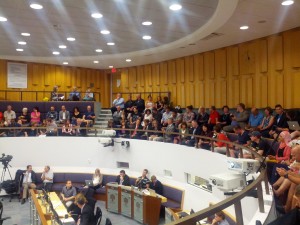 And as a packed gallery sat and watched council go through the motions of debating the issue there was a sense of anticipation. As each councillor rose to speak to the issue they re-affirmed their previous position. That was until Denise Brown finally rose to speak to the motion last.
And as a packed gallery sat and watched council go through the motions of debating the issue there was a sense of anticipation. As each councillor rose to speak to the issue they re-affirmed their previous position. That was until Denise Brown finally rose to speak to the motion last. 